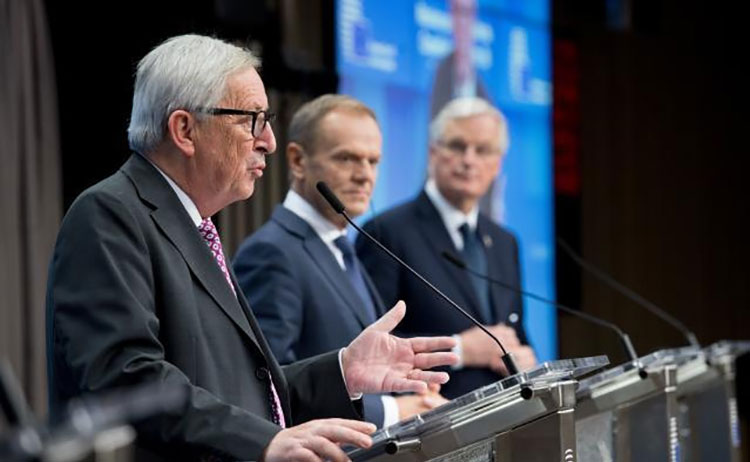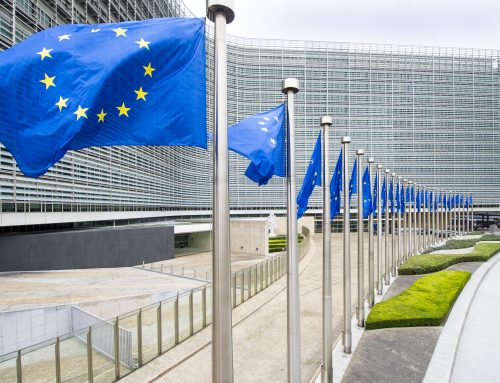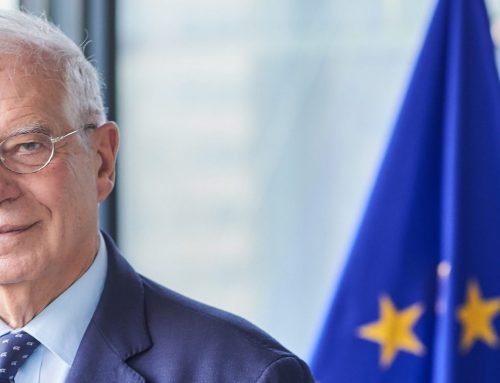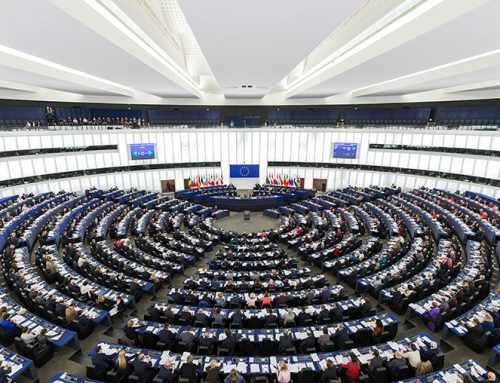Leaders of EU27 adopted the Brexit deal, consisting of the legally binding document on UK’s withdrawal from the Union and the Political Declaration laying out future UK-EU relations. The legally binding “Agreement on the withdrawal of the United Kingdom and Northern Ireland from the European Union and the European Atomic Energy Community” is a 585-page document that defines the terms and conditions of Britain’s EU exit.
European Commission President Jean-Claude Juncker described UK’s departure as a “tragedy” and a dubbed the day as a “sad one.”
European Council President Donald Tusk said that the European Union and United Kingdom will remain friends forever, regardless of the ratification process and further talks.
British Prime Minister Theresa May said that the Brexit agreement adopted on 25 November is “the best and only possible deal.”
The Brexit agreement now needs to be ratified by the UK Parliament, national parliaments of at least 20 Member States and the European Parliament.
The document states that the UK will, following the departure set for 29 March 2019, remain part of the EU’s single market and be subject to its rules until the end of 2020. During the transitional period, the EU and UK will be working on defining future trade relations.
The transitional period may get an extension of two years tops – but may not exceed 1 July 2020 – should both sides agree they need more time.
When it comes to the Northern Ireland-Ireland border, the agreement obliges both sides not to introduce border control or any other obstacles to free movement. The UK and Northern Ireland will remain part of the Customs Union and such a solution will remain in force until new, more viable trade arrangements are reached. Both sides said they hope to reach a new deal by the end of 2020.
The UK committed to pay around GBP39 billion (around EUR44 billion) in order to cover the pensions contributions and obligations arising from EU programmes for the period up to 2020.
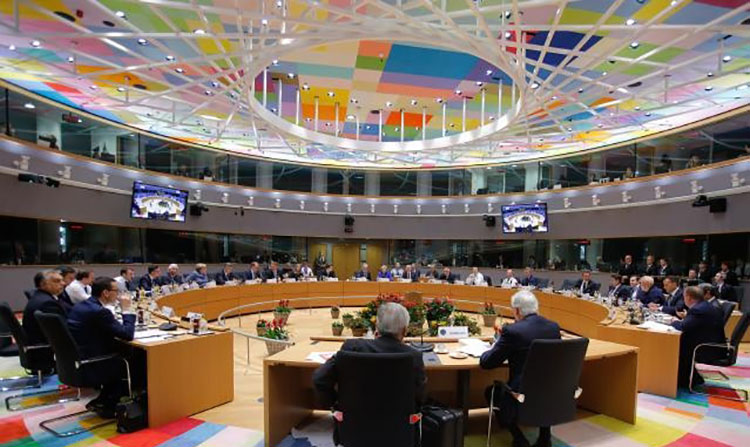 EU citizens living in the UK and the British living in any of the Union’s Member States will enjoy the same living and working rights observed in those countries as their own citizens.
EU citizens living in the UK and the British living in any of the Union’s Member States will enjoy the same living and working rights observed in those countries as their own citizens.
The second adopted document, dubbed the Political Declaration, is 26-page long and deals with EU-UK post-Brexit relations, providing guidelines for issues such as trade and security.
The document states that both sides commit to a “deep and flexible” partnership covering trade and economic cooperation, criminal law, foreign policy, security and defence and other areas of cooperation. However, a number of details in the Declaration will be further elaborated once the UK leaves the EU on 29 March 2019.
When it comes to trade, London and Brussels will strive towards “comprehensive” economic relations, including in the area of free trade. There will be joint customs arrangements in place with a view to securing duty free trade.
The Declaration further reads that the UK will “consider aligning with Union rules in relevant areas“ in order not to put economic relations under strain. However, the document states that the level of UK and EU’s closeness will be limited by the need of the EU to protect the integrity of its single market and UK’s desire to pursue an independent trade policy.
When it comes to the border issue between Northern Ireland and Ireland, London and Brussels have committed to replacing the backstop solution on Northern Ireland by a subsequent agreement that establishes alternative arrangements for ensuring the absence of a hard border on the island of Ireland on a permanent footing. This may include technological solutions yet to be developed.
The most contested issue remains pending – fisheries, i.e. the access to British and EU territorial waters. The Declaration states only that the two sides should “establish a new fisheries agreement,” ideally prior to 1 July 2020.
The two sides will try to keep the current level of cooperation in the area of security, “as long as it is technically and legally possible,” and the Declaration should allow “timely exchanges of intelligence and sensitive information between the relevant Union bodies and the United Kingdom authorities.”
According to the Declaration, and following the transitional period, EU and UK citizens won’t need visas for short stays.
More information can be found in the following documents:
- European Council (Art. 50) conclusions, 25 November 2018
- Draft agreement on the withdrawal of the UK from the EU as agreed at negotiators’ level on 14 November 2018, including text of Article 132. This text is subject to final legal revision in the coming days.
- Political declaration setting out the framework for the future relationship between the EU and the UK
- Statements, 25 November 2018
- Remarks by President Donald Tusk after the European Council (Art. 50) special meeting
- Brexit – background information and complete timeline

